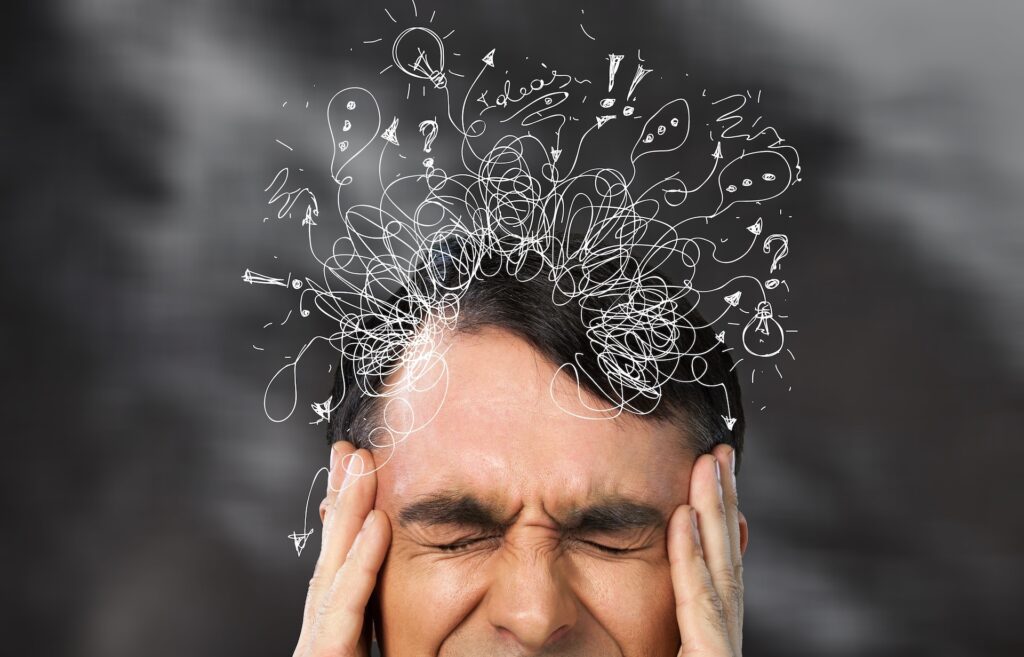We’ve recently written about neurodiversity in treatment and recovery, and the unique challenges individuals may face due to their particular brain or way of existing. At Sunshine Coast Centre, one of the most common neurodivergent diagnoses among our clients is Adult Attention-Deficit/Hyperactivity (ADHD).
To give a little background, ADHD got its official name from the APA in 1987, evolving as a concept from ideas around childhood restlessness. In Canada, ADHD is estimated to affect almost 2 million people, though many people may never seek out or receive a diagnosis.
How Does ADHD Affect Addiction and Mental Health Treatment?
Folks with ADHD can experience the world in a very different way than someone who is not neurodivergent, including how they experience healing or treatment and recovery. For example, they may find it harder to engage fully in therapy, support groups, or other recovery activities. This can be hard for people who don’t have ADHD to fully appreciate, but—biologically speaking—ADHD poses unique challenges in treatment and recovery.
Here’s Why It’s Harder For People With ADHD
Paying attention and focusing is a regular task for the brain. Our ability to do this task is largely rooted in the brain’s reward system, which uses dopamine as a sort of gatekeeper compound to focus the brain on specific tasks while blocking out distractions.
“Dopamine has this wonderful effect,” says program director Geoff Thompson, PhD, CCC. “It will dampen any stimulus competing for your attention… maybe the lights are flickering or someone’s talking behind you or people are rustling papers, or someone’s moving their chair… dopamine is blocking all that, which then allows you to focus on the task at hand.”
In people with ADHD, this dopamine stimulation of the reward part of the brain is underactive, and background stimuli are competing for attention and focus.

Drugs Increase Focus, So People Self-Medicate
Ritalin and other amphetamines have been used in managing ADHD since the 1950s. From decades in treatment and recovery, it’s clear that many people self-medicate with street or prescription drugs for ADHD—diagnosed or otherwise.
“It’s interesting, because these medications are actually speed, like Ritalin is, or they act on the brain the same way, and when people with ADD take these substances, they often feel more able to focus or a lot calmer.”
However, for individuals with ADHD, these medications help stimulate the brain’s dopamine production, allowing them to experience increased focus and a sense of calm.
What Does This Mean For Addiction Treatment?
When it comes to treatment and recovery strategies for people with ADHD, understanding the interplay between focus, the brain’s pleasure center, and addiction is crucial. Medications, therapy, and behavioural interventions can all play a role in helping individuals manage their symptoms and navigate addiction.
Ultimately, treatment is focused on supporting wellness and finding ways to reduce or stop problematic substance use.
Medication and Professional Help
For people who are experiencing problematic substance use or addiction related to managing their ADHD, medication gives rise to questions that can feel daunting:
- Can I stop self-medicating without going into withdrawal?
- Is there any alternative to these substances that will work as well for me?
- Is it too late to rewire my brain, having used these substances for so long?
The answer to these questions depends on a lot of factors, which is why an individualized and collaborative plan is so important. Our licensed and professional clinical teams are here to support clients through a transition to reduce or stop problematic substance use and addiction.

At Sunshine Coast Health Centre & Georgia Strait Women’s Clinic, we recognize the impact of ADHD on treatment and recovery. Our holistic approach acknowledges the intricate relationship between the physical, psychological, social and spiritual aspects of individuals in treatment and recovery. If you or anyone you know is looking for support with addiction and mental health, please reach out today.



